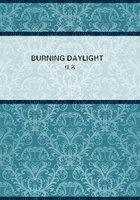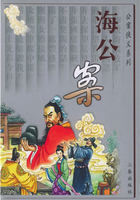"Well, well, you shall have your way," laughed the other, good-naturedly, and turning to the pale young man, who still kept his eyes fixed on Herr Wolff in a sort of ecstacy, he said: "Let the authors and poets stay in Berlin; we will persuade the disguised Apollo to meet them there, and read them a lecture, for among the Berlin poets and critics there are wicked heretics, who, if the Deity Himself wrote tragedies and verses, would find some fault to object to.""Pray tell me, sir, do you think Prince Henry a great man?""Did not the king call him so in his 'History of the Seven Years'
War?'" said the stranger. "Did he not publicly, in the presence of all his generals, say, 'that Prince Henry was the only general who had not made a mistake during the whole war?'""Do you believe the king will say that of the prince just riding in with his suite, after the present war?" asked the young man, with earnestness.
"You mean the Prince of Prussia," answered the other, shaking his head. "There are men who call this prince the 'hope of Prussia,' and regard him as a new Aurora in the clouded sky.""And you, sir, do you regard him so?" cried Herr Wolff.
"Do you mean that the Prince of Prussia will usher in a brighter day for Germany?""No," answered the other. "I believe that day expires with Frederick the Great, and that a long night of darkness will succeed.""Why do you think so?"
"Because it is the course of nature that darkness succeeds light.
Look at the prince, gentlemen--the divine light of genius is not stamped upon his brow, as formerly, and care will be taken that it is soon extinguished altogether.""Who will take care?"
"Those who are the enemies of light, civilization, and freedom.""Who are they?" asked Herr Wolff.
The other smiled, and answered: "Sir, so far as I, in all humility, call myself a scholar, I also owe to the god Apollo obedience, and must answer him, though it may endanger me. I answer, then, the enemies of light and civilization are the disguised Jesuits.""Oh, it is easy to perceive that you do not belong to them, or you would not thus characterize them, and--"A mighty flourish of drums, and shrill blasts of horns and trumpets, drowned the youth's words, and made all further conversation impossible. The king, followed by a brilliant suite, had just arrived at the parade. The regiments greeted their sovereign with loud blasts of trumpets, and the people shouted their farewell.
Frederick lifted lightly his hat, and rode along the ranks of the well-ordered troops. He listened to the shouts with calm, composed manner; the Jupiter-flashes from his great eyes seemed to be spent forever. Mounted upon Caesar, his favorite horse, he looked today more bent, his back more bowed with the burden of years; and it was plainly visible that the hand which held the staff crosswise over the horse's neck, holding at the same time the bridle, trembled from very weakness.
"That is Frederick," said Herr Wolff to himself. "That is the hero before whom Europe has trembled; the daring prince who caused the sun to rise upon his country, and awaken the spirits to cheerful life. Oh, how lamentable; how much to be regretted, that a hero, too, can grow feeble and old! Oh, cruel fate, that the noblest spirits embodied in this fragile humanity, and--"Suddenly he ceased, and looked at the king amazed and with admiration. The old man had become the hero again. The bowed form was erect, the face beamed with energy and conscious power, the eyes flashed with bold daring, strong and sonorous was the voice. The king had turned to his generals, who were drawn up around him in a large circle, saying: "Gentlemen, I come to take leave of you. We shall meet again upon the battle-field, where laurels bloom for the brave. I hope that we may all return, crowned with fresh laurels.
Tell my soldiers that I count upon them--that I know they will prove the glory of the Prussian troops anew, and that on the day of battle they will see me at their head.--Farewell!""Long live the king!" cried the generals and staff officers, in one voice. The people and the soldiers joined the shout, the ladies waved their handkerchiefs. Herr Wolff and his companions tore off their hats with enthusiasm, and swung them high in the air.
The great eyes of the king, who passed at this moment, rested upon Herr Wolff. "My heart quaked as if I were the pillar of Memnon, and had been touched by the sun's rays," sighed he, as he followed the king with his fiery glance.
"The ceremony is now finished," said the young man near him, "and we must leave, in order to be punctual to dinner at Prince Henry's.""I wish the king had remained an hour longer," sighed Herr Wolff again. "As I looked at him, it seemed as if I were listening to a song from Homer, and all my faculties were in unison in delight and enthusiasm. Happy those who dare approach him, and remain near him!""Then, according to your opinion, his servants must be very fortunate," said the stranger, "and yet they say that he is not very kind to them.""Because the servant is a little man," cried Herr Wolff, "and every one looks little to his belittling eyes.""Yes, there are many others no more elevated than servants in the king's surroundings," said the other. The youth reminded him that they must leave.
"Only wait a moment, friend," begged Herr Wolff, as he turned to the stranger, saying, "I would like to continue our conversation of today. You live in Berlin. I will find you out if you will give me your name.""I pray you to visit me; my name is Moritz. I live in Kloster Strasse, near the gray convent.""Your name is Moritz?", asked Herr Wolff, earnestly. "Then you are the author of the 'Journey to England?'""Yes, the same, and my highest encomium is, that the work is not unknown to you, or the name of the author.""All Germany knows it, and do you think I could possibly remain a stranger to it?""But your name, sir," said the stranger, with anxious curiosity.
"Will you not give me your name?"
"I will tell you when we are in your own room," said Herr Wolff, smiling.















